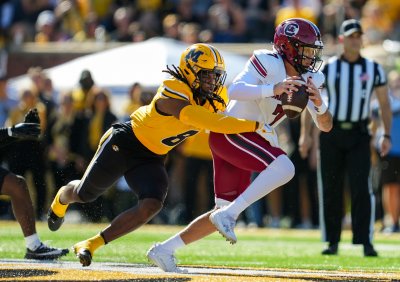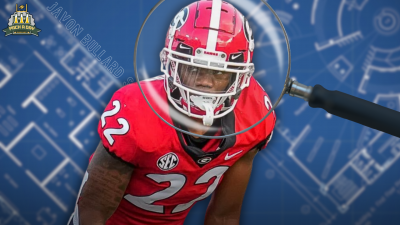Ethics of the NFL's Open Data Policy: Critical Reflections
By Ed Wood
The National Football League began using RFID (radio frequency identification) chips in 2014, and the technology has become an incredible success. Transmitters are placed everywhere: on athletes’ uniforms, balls, and around the field. The technology evaluates all data on performance, speed, hit frequency, etc., during the match and instantly transfers it to the team’s management.
This information has long remained private, but the NFL has initially launched its open data initiative. This policy allows everyone to explore the relevant statistics and be aware of individual player’s performances and the overall situation on the field. Such a decision has brought multiple benefits for football enthusiasts, but also raised some ethical concerns among athletes and their fans. Let’s consider the latest implementation from both sides.
Advantages of NFL Open Data Policy
Openness to the public and other market players increases trust and demand for the League. Currently, every person or organization can receive up-to-date information from footballers' RFID chips. Such an approach has several benefits, so let’s consider them first.
Sports & Betting Enthusiasts Can Learn Details
Receiving relevant data right from transmitters can help evaluate everything happening during the match and predict its outcome. This option is especially helpful for punters. Suppose you enter trusted bookies that don’t have KYC check and need to place a bet on the preferred team. Of course, it’s always possible to make a random prediction and hope that Lady Luck is on your side today. However, getting additional information about the match for making informed decisions is much better. This strategy increases winning chances, so the open data policy is definitely advantageous for betting lovers.
Integrity of Sports & Data Science
Players and teams’ management must control actual data to make informed decisions during the match. RFID chips can evaluate numerous details, including the athlete’s health condition and injuries. Knowing these details assists coaches in making timely changes and showing more successful performances during the contest. Moreover, the data is stored after the match, providing the opportunity to assess mistakes and correct them during the following tournaments.
Disadvantages of Open Data Policy Raising Ethical Concerns
At first glance, the decision to share data during the match is beneficial from all sides: team management can make more informed decisions, while football fans get more details about their favourite athletes’ and clubs’ performance during the contest. However, there are still some drawbacks that can significantly affect players’ experiences.
Challenges with Future Contracts
First, data privacy should be the priority for all football clubs – and sharing athletes’ personal indicators is not ethical in this case. The transmitter evaluates all the possible information, including players’ health conditions and other biometric data. Anyone, including owners of other teams, can track these factors. Therefore, lack of privacy and broad accessibility of all footballer’s characteristics may affect their results during transfer negotiations.
Privacy Risks for Football Clubs
The open data policy unlocks access to all team’s statistics and performance indicators. These details are often a part of ownership, so it may cause negotiations among broadcasters and other industry players. Getting exclusive rights for specific data is impossible anymore, as everyone can access the necessary details for free. In addition, data breaches are not rare in football, and the availability of data from RFID chips makes it even simpler for fraudsters. Confidentiality should remain the priority for all NFL clubs during the current season, so the issue raises multiple disputes.
Innovations vs Traditions: Should Open Data Policy Be Eliminated?
Many people are confident that the football industry should maintain traditions and use minimum technologies during matches. This helps preserve the authentic spirit of the game. At the same time, the digital world is constantly developing, and it’s barely impossible to imagine an event without broadcasting, online betting, and so on.
Undeniably, RFID chips raise disputed concerning the ethical side of their usage. Players can face significant drawbacks, including losing their privacy and having trouble when signing contracts. At the same time, RFID chips are really beneficial for coaches and team management when it comes to evaluating performance and strategic planning.
David Anderson, a former NFL player, offered a way to resolve the problem. The ex-footballer considers the technology helpful, but highlights that it should only be used to assess the general team’s performance. RFID can appear unreliable and insecure, so utilizing it to evaluate individual performance can only happen after the player’s consent. All in all, the overall open data policy is still under discussion.
Final Insight
Many sports enthusiasts consider the latest NFL implementation a real gift, allowing access to all relevant data of the current season with a few clicks. Football lovers can get more detailed match analyses, bettors enjoy more statistics to make predictions with responsible gambling principles, while the team’s management can build the future strategy according to the latest performance.
On the other hand, athletes’ personal details should remain private. Otherwise, they can become a scammer’s victim or face problems signing the following contract. Opinions about this policy are divided, but we are confident that the NFL management will make the right decision that will benefit all parties.
PLEASE SUBSCRIBE TO OUR CHEESEHEAD NATION WEEKLY NEWSLETTER HERE.
__________________________












Comments (3)
Rory P Scrotem
April 20, 2024 at 12:06 pm
***GOT WOOD***
Ah-hem...Did I speed-read this correctly? "Transmitters are placed everywhere: on athletes' uniforms, balls, and around the field."
Transmitters on players' balls...really? Player's Union know about this?
And for Oppie and his red pen...no coma after said "balls!"
jont
April 21, 2024 at 11:57 am
"Transmitters are placed everywhere: on athletes' uniforms, balls, and around the field."
Phrasing!
What, are we not doing that anymore?
jont
April 21, 2024 at 12:06 pm
"The technology evaluates all data on performance, speed, hit frequency, etc."
I don't how this involves player privacy in any way so I don't see any ethical objection. This is not about a player's medical condition; it is merely a more accurate and detailed measurement of observable behavior.
In my view, the league handles medical confidentiality pretty well. An announcment in good faith of the player's likelihood to play and a general discription of the reason is reasonable disclosure while respecting the person's privacy. And there is no need for anyone to know more.
Frankly, while I suppose this tech has some player evaluation value, what I expect is just more hype about "only a 23.7854634% chance of making that catch!! (Brought to you by Amazon Data Services)"